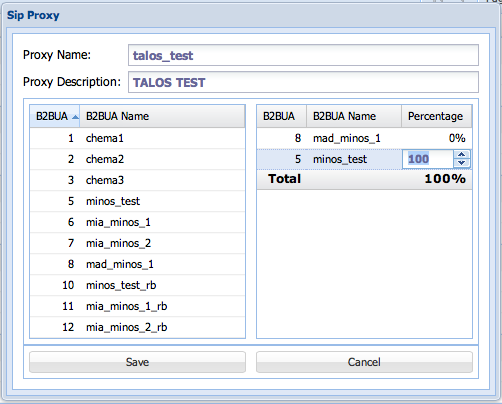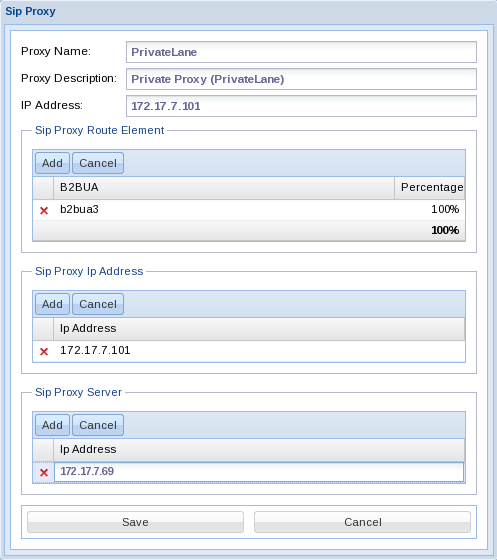System
SYSTEM
In this chapter, technical details of the network topology described in chapter 1 are managed.
SIP Proxy
This table defines the SIP proxies that will handle the calls. The proxies serve as the public face of the SKY DANCE system.

To edit a Route Server:
- Select the check box of the Proxy list you want to edit and click âEditâ. The following window will appear.


- Drag and drop B2BUA from the list of available UA to the left and configure your list to the right.
- Assign the load of each UA.
- Click âSaveâ to confirm the changes or âCancelâ to discard them.
SIP Route Server
In this option the routing servers â are defined. These servers are responsible for managing the static and automatic routing.

You can add and delete routing servers of the list by using the corresponding buttons.
SIP Route Server Cluster
In the process, the Back to Back User Agent â queries the routing servers and in return, the routing servers will deliver the list of qualified suppliers to terminate the call. In this table the pair of routing servers that the B2BUA query, are defined.

The percentage of calls a B2BUA will consult to a routing server or the other is defined in the SIP Route Server Cluster. For example, in row 1 of figure 39 the User Agent queries the routing server Madrid and Miami in the same percentage of calls.
You can add and delete SIP Routing Server Clusters of the list by using the corresponding buttons.
SIP B2BUA
This table defines the list of B2BUA associated with the SIP Route Server Clusters.
